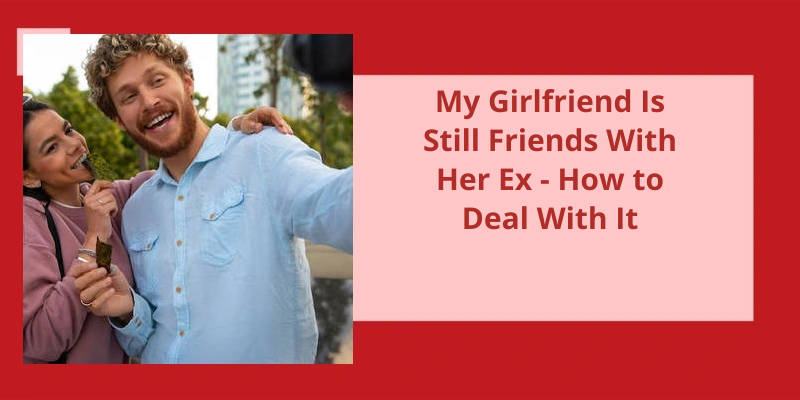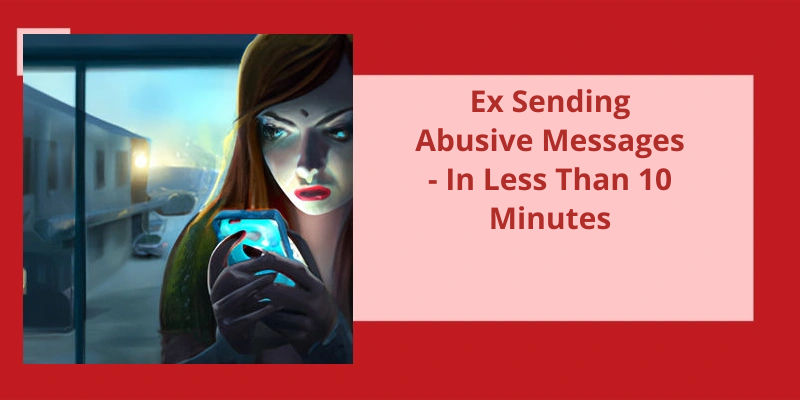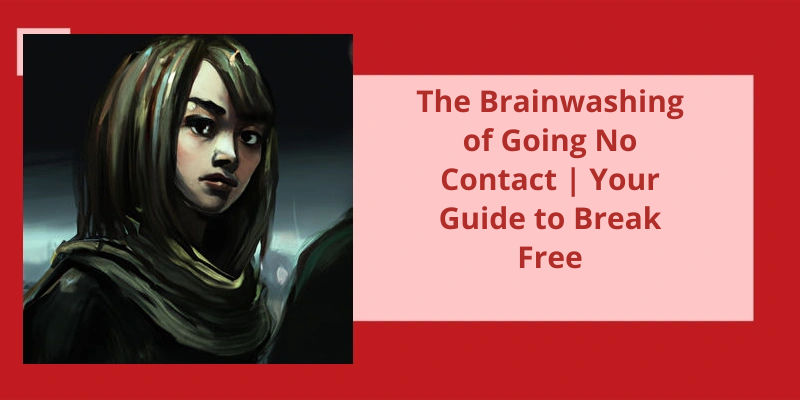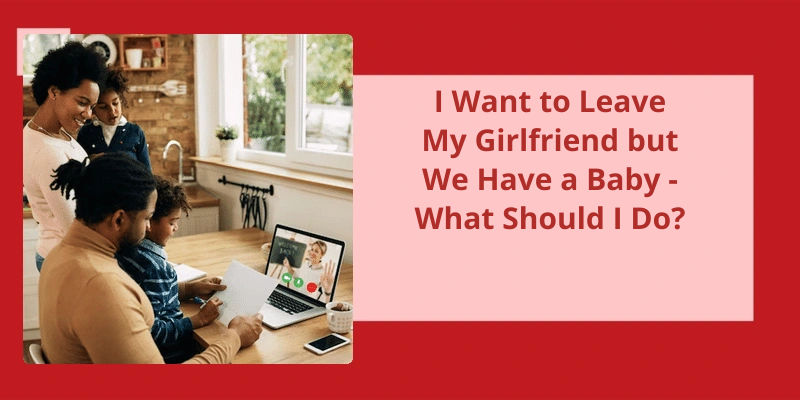Navigating the complexities of romantic relationships can be a challenging task, especially when confronted with the notion that your partner is still friends with their ex. It’s a situation that can trigger a whirlwind of emotions, leaving you feeling insecure, jealous, and questioning the future of your relationship. However, it’s crucial to approach this scenario with an open mind, understanding that maintaining friendships with past partners doesn’t necessarily signal a threat to the current relationship. In this article, we will delve into the various reasons why your girlfriend may choose to remain friends with her ex, explore the potential dynamics of their friendship, and offer guidance on how to navigate these circumstances with trust, communication, and self-assurance.
What Does It Mean if Your Gf Is Talking to Her Ex?
It can be a tricky situation to navigate when your girlfriend continues to stay in contact with her ex. It’s natural to feel a bit uneasy about it, as questions and doubts may arise. However, it’s important to approach the situation with an open mind and communicate with your partner about your concerns.
One possibility is that your girlfriend genuinely sees her ex as just a friend. They may have shared a special bond in the past, but have since decided that a romantic relationship isn’t what they want. In this case, your girlfriend may simply be maintaining the friendship because of the positive experiences they’d together. It’s crucial to trust your partner, believe in her intentions, and not jump to conclusions without evidence.
Ending any relationship, even one that didnt work out romantically, can be difficult. They may have shared friends or common interests, making it harder to avoid contact altogether.
As with any issue in a relationship, communication is key. Talk to your girlfriend about how you feel, but remember to approach the conversation with understanding and empathy. Share your concerns and listen to her perspective as well. It’s crucial to establish a sense of trust and open dialogue, allowing both of you to express your emotions and find a compromise that works for both parties.
Ultimately, it’s important to focus on the present and the strength of your own relationship with your girlfriend. If you believe in the love and commitment you share, there’s no reason to let the presence of an ex cause unnecessary distress. Trust your partner, communicate openly, and continue to cultivate a healthy and thriving relationship together.
Dealing With Jealousy in a Relationship
- Recognizing and acknowledging your own feelings of jealousy.
- Communicating openly and honestly with your partner about your feelings.
- Building trust and working on the foundations of your relationship.
- Avoiding comparisons and focusing on your own self-worth.
- Practicing self-care and maintaining a healthy sense of self.
- Establishing boundaries and discussing them with your partner.
- Engaging in activities and hobbies that promote personal growth and independence.
- Addressing insecurities through therapy or self-reflection.
- Understanding that jealousy is a normal emotion but choosing how to respond to it.
- Developing empathy and supporting your partner’s feelings and concerns.
- Working on building a strong emotional connection and maintaining open lines of communication.
- Seeking professional help if jealousy becomes overwhelming or destructive.
Navigating relationships can be complex, especially when it comes to maintaining connections with ex-partners. However, if the breakup is recent and either or both individuals are still in the process of healing, it may not be advisable for a girlfriend to be friends with an ex. This is because remaining close friends can hinder the ex’s ability to move on and impede the progress of establishing a healthy new relationship.
Should a Gf Be Friends With an Ex?
When it comes to the question of whether a girlfriend should be friends with her ex, the timing and circumstances of the breakup play a crucial role. If the breakup happened recently and one or both of them are still recovering, it may not be the best idea for them to remain close friends. This is because maintaining a friendship so soon after a breakup can hinder the exs ability to move on emotionally, potentially causing them to hold onto feelings from the past. In addition, it can also hinder the growth and development of the new relationship.
Setting healthy boundaries can help ensure that everyones needs are met and that the new relationship has a chance to prosper. This could involve establishing guidelines for communication, limiting contact with the ex, or even temporarily taking a break from the friendship until both parties have had sufficient time to heal and move on.
It depends on the emotions involved, the timing of the breakup, and the willingness of all parties to navigate the complexities of these relationships. Honest communication, understanding, and mutual respect are vital in dealing with this situation in a way that benefits everyone involved.
How to Establish Healthy Boundaries When Being Friends With an Ex
- Set clear expectations and communicate openly with your ex about your boundaries.
- Take time apart to heal and gain clarity before attempting to be friends.
- Establish rules or guidelines that both parties agree upon and feel comfortable with.
- Avoid engaging in romantic or intimate activities with your ex.
- Respect each other’s privacy and personal space.
- Be mindful of the potential emotional impact on yourself and your ex when discussing past romantic experiences.
- Recognize and accept that the dynamic of the relationship will change after a breakup.
- Consider seeking support from a therapist or counselor to help navigate the process of establishing healthy boundaries.
- Prioritize self-care and focus on your own well-being.
- Be prepared to re-evaluate the friendship if it becomes too challenging or detrimental to your emotional health.
Transitioning out of a relationship can be complicated, especially when it comes to friendships with mutual acquaintances. Before diving into an ex’s circle of friends, it’s crucial to examine your motivations. However, using this connection as a means to monitor your former partner’s life is a red flag.
Is It OK to Be Friends With Ex’s Friends?
Maintaining a friendship with your exs friends can be a tricky situation to navigate. It’s only natural to question whether it’s okay or not. However, the answer to this dilemma ultimately lies in your intentions. If you genuinely value the friendship and have no ulterior motives, it may be acceptable.
Nevertheless, it’s crucial to be brutally honest with yourself. If you find that your desire to remain friends with your exs mates is primarily fueled by a need to keep tabs on your former partner, it’s best to reconsider. Using this friendship as a means to monitor your exs activities can be counterproductive and may lead to more pain and confusion.
Instead, focus on building genuine connections and fostering new friendships outside of this circle. It’s essential to give yourself the space to heal and grow independently from your past relationship. Surrounding yourself with new people and experiences can help broaden your perspective and aid in your personal growth.
If seeing or interacting with your exs friends brings up painful memories or creates unnecessary drama, it might be best to distance yourself for a while.
Ultimately, the decision to maintain these friendships should be based on what feels right for you. Take the time to evaluate your intentions and prioritize your own healing and happiness. Trust your instincts and do what feels right for you in this situation.
Dealing With Jealousy and Insecurity in Maintaining Friendships With Your Ex’s Friends: Strategies for Managing These Emotions and Ensuring a Healthy and Positive Mindset.
- Recognize and validate your emotions.
- Communicate openly with your ex’s friends about your concerns.
- Focus on building your own support network.
- Practice self-care and engage in activities that bring you joy.
- Acknowledge that friendships can evolve and change over time.
- Work on developing trust in yourself and your relationships.
- Challenge irrational thoughts and replace them with positive affirmations.
- Seek professional help if necessary to navigate through these emotions.
- Give yourself time and space to heal.
- Forgive yourself and others involved in the situation.
Source: Is it bad to remain friends with my ex’s friends?..
Building a healthy and supportive friendship with an ex-partner might seem like a red flag at first, but relationship expert David Bennett suggests that it could actually be a positive experience given the right circumstances.
Is Friends With an Ex a Red Flag?
One of the key factors to consider when evaluating whether being friends with an ex is a red flag in a relationship is the underlying dynamics and motives behind the friendship. If the relationship ended on amicable terms and both individuals have genuinely moved on, it may indicate emotional maturity and the ability to maintain a healthy friendship. However, if there are lingering romantic feelings, unresolved issues, or any form of emotional dependency, it can potentially jeopardize the current relationship.
Communication is vital in navigating this situation. It’s crucial for both partners to have an open and honest discussion about their feelings and concerns. Establishing clear boundaries and understanding each others expectations can help maintain trust and ensure that both individuals feel secure in the relationship. In some cases, setting boundaries may involve limiting contact or avoiding situations that could potentially create discomfort or trigger jealousy.
Jealousy is a common emotion that might arise when a partner remains friends with their ex. It’s essential to acknowledge and address these feelings rather than dismissing or suppressing them. Jealousy often stems from insecurities or fears of being replaced. Openly discussing these concerns and working on building trust and self-confidence can help alleviate these negative emotions and strengthen the relationship.
Another crucial aspect to consider is the behavior and intentions of the ex-partner. However, if the ex consistently undermines the current relationship or tries to manipulate the situation, it can be a cause for concern.
Ultimately, it’s important to approach the situation with empathy, understanding, and patience. Every relationship is unique, and what might work for one couple may not work for another. It’s crucial to focus on open communication, trust-building, and mutual respect to ensure a healthy and fulfilling relationship while navigating the complexities of having an ex as a friend.
Should I Be Upset if My Girlfriend Talks About Her Ex?
It’s understandable that you might feel uneasy or insecure when your girlfriend talks about her ex. It may make you wonder if she still has lingering feelings for him or if she’s comparing you to him. However, it’s essential to approach this situation with an open and honest conversation rather than jumping to conclusions or becoming overly possessive.
In doing so, it’s essential to avoid placing blame or becoming accusatory. Instead, focus on your own emotions and the impact her actions have on you. By taking this approach, you can open up a dialogue and gain a better understanding of her intentions.
Furthermore, it might be helpful to discuss boundaries regarding exes. While it’s natural for people to have some level of contact or even friendship with their exes, it’s vital to establish what’s acceptable within your relationship. It’s about finding a balance that respects both your feelings and her need for closure or maintaining certain connections from her past.
Ultimately, it’s crucial to remember that your girlfriends actions and words are a reflection of her, not you. While it’s normal to feel insecure or jealous at times, it’s essential to trust in your relationship and have faith in her commitment to you. Building a strong foundation of trust and understanding will help navigate any challenges that arise along the way.
Conclusion
Trust and reassurance play key roles in fostering a healthy relationship, and it’s crucial to recognize that maintaining connections with exes doesn’t necessarily signify a threat to the current partnership. Instead, it may reflect maturity, emotional intelligence, and the ability to separate romantic and platonic relationships. By effectively addressing any concerns or insecurities and fostering a strong foundation of trust, it’s possible to navigate this dynamic and build a thriving relationship based on mutual respect and understanding.






